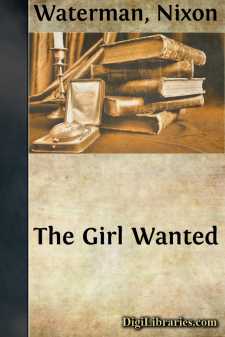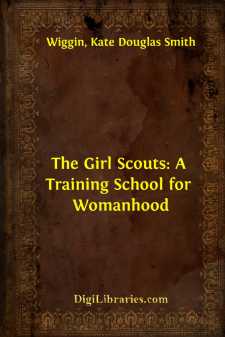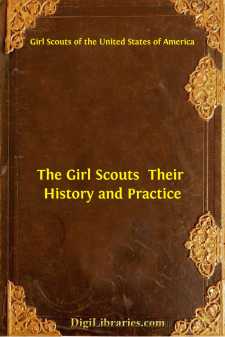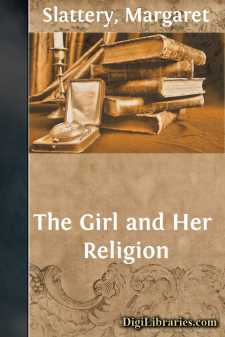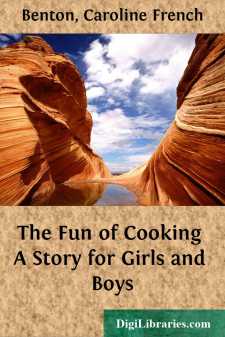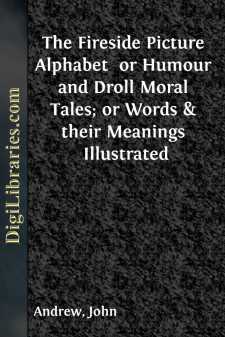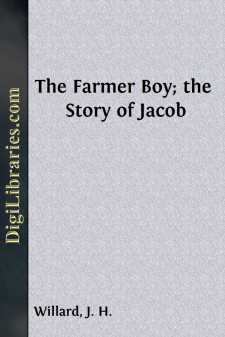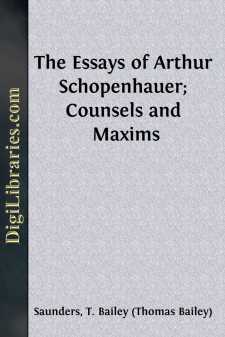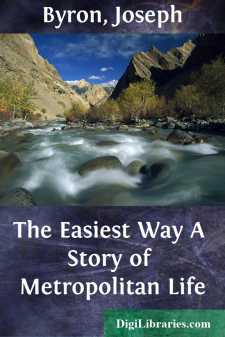Juvenile Nonfiction
- Animals 10
- Art 1
- Biography & Autobiography 2
- Boys & Men 1
- Business & Economics 3
- Cooking & Food 2
- Gardening 1
- General 32
- Girls & Women 7
- History 2
- Holidays & Celebrations 1
- Lifestyles 79
- Literary Criticism & Collections 5
- Nature 11
- Readers 40
- Religion 4
- Sports & Recreation 1
Juvenile Nonfiction Books
Sort by:
by:
Nixon Waterman
CHAPTER ICHOOSING THE WAY What can be expressed in words can be expressed in life.—Thoreau.Yes, my good girl, I am very glad that we are to have the opportunity to enjoy a friendly chat through the medium of the printed page, with its many tongues of type. It is faith in something and enthusiasm for something that makes a life worth looking at.—Oliver Wendell Holmes. Just here I have a favor to ask...
more...
I am heartily interested in the Girl Scouts of America. The fact is, I think I was always a Girl Scout myself (although the name was unknown); yes, from the very beginning. Even my first youthful story was “scouty” in tone, if I may invent a word. Then for a few years afterward, when I was “scoutingly” busy educating little street Arabs in San Francisco, I wrote books, too, for and about...
more...
GIRL SCOUTS History of the American Girl Scouts. When Sir Robert Baden-Powell founded the Boy Scout movement in England, it proved too attractive and too well adapted to youth to make it possible to limit its great opportunities to boys alone. The Sister organization, known in England as the Girl Guides, quickly followed it and won equal success. Mrs. Juliette Low, an American visitor in England, and a...
more...
THE RIGHTS OF A GIRL She has certain inalienable rights, regardless of race, color or social state. When it has thought about her at all, society in general has supposed, until recently, that in a free country, a glorious land of opportunity, the girl has her rights—the right to work, the right to play, the right to secure an education and to enter the professions, the right to marry or to refuse,...
more...
CHAPTER I THE DAY BEFORE CHRISTMAS The Blairs were a particularly nice family. That is what the neighbors always said of them, and, to tell the truth, the Blairs believed it. That is, the father and mother thought the children were particularly nice, and the children thought their father and mother and each other particularly nice; and so, of course, they all must have been very nice indeed. Saturdays...
more...
by:
John Andrew
TO PRECEPTORS. With learning may laughter be found; "'Tis good to be merry and wise;" To gayly get over the ground, As higher and higher we rise. Some children their letters may learn, While others will surely do more, As the subjects suggestively turn To matters not thought of before. Descriptions and pictures combined Are here made attractive and clear; So suited that children may find...
more...
by:
J. H. Willard
THE FARMER BOY THE STORY OF JACOB Abraham, the father of the great Israelitish, or Hebrew, nation, was the chief, or sheikh, as he would be called now, of his family or tribe, and with his flocks of sheep, herds of cattle, camels and other animals, servants and followers, moved from place to place, adding to his wealth as time went on and making for himself a respected name wherever he went. God chose...
more...
CHAPTER I. GENERAL RULES.—SECTION 1. The first and foremost rule for the wise conduct of life seems to me to be contained in a view to which Aristotle parenthetically refers in the Nichomachean Ethics:[1] [Greek: o phronimoz to alupon dioke e ou to aedu] or, as it may be rendered, not pleasure, but freedom from pain, is what the wise man will aim at. [Footnote 1: vii. (12) 12.] The truth of this...
more...
by:
Horatio Alger
CHAPTER I. PHIL HAS A LITTLE DIFFICULTY. Phil Brent was plodding through the snow in the direction of the house where he lived with his step-mother and her son, when a snow-ball, moist and hard, struck him just below his ear with stinging emphasis. The pain was considerable, and Phil's anger rose. He turned suddenly, his eyes flashing fiercely, intent upon discovering who had committed this...
more...
by:
Joseph Byron
CHAPTER I. The hour was late and the theatres were emptying. The crowds, coming from every direction at once, were soon a confused, bewildered mass of elbowing humanity. In the proximity of Broadway and Forty-second Street, a mob of smartly-dressed people pushed unceremoniously this way and that. They swept the sidewalks like a resistless torrent, recklessly attempting to force a path across the...
more...


